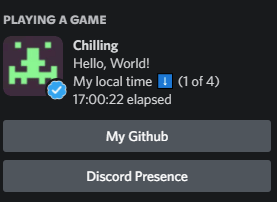Auto Launch
Auto launch any application or executable at startup. Supports Windows, Mac (via AppleScript or Launch Agent), and Linux.
How does it work? See Teamwork/node-auto-launch for details.
If you find any bugs, welcome to PR or issue.
Usage
The parameters of AutoLaunch::new are different on each platform. See the function definition or the demo below for details.
Or you can construct the AutoLaunch by using AutoLaunchBuilder.
Linux
On Linux, it supports hidden parameter which means that hidden the app on launch.
use auto_launch::AutoLaunch;
fn main() {
let app_name = "the-app";
let app_path = "/path/to/the-app";
let auto = AutoLaunch::new(app_name, app_path, false);
// enable the auto launch
auto.enable().is_ok();
auto.is_enabled().unwrap();
// disable the auto launch
auto.disable().is_ok();
auto.is_enabled().unwrap();
}
Macos
Macos supports two ways to achieve auto launch (via AppleScript or Launch Agent). When the use_launch_agent is true, it will achieve by Launch Agent, otherwise by AppleScript. On Macos, it supports hidden parameter which means that hidden the app on launch.
Note:
- The
app_pathshould be a absolute path and exists. Otherwise, it will cause an error whenenable. - When in the AppleScript way, the
app_nameshould be same as the basename ofapp_path, or it will be corrected automately.
use auto_launch::AutoLaunch;
fn main() {
let app_name = "the-app";
let app_path = "/path/to/the-app.app";
let auto = AutoLaunch::new(app_name, app_path, false, false);
// enable the auto launch
auto.enable().is_ok();
auto.is_enabled().unwrap();
// disable the auto launch
auto.disable().is_ok();
auto.is_enabled().unwrap();
}
Windows
On Windows, it will add a registry entry under \HKEY_CURRENT_USER\SOFTWARE\Microsoft\Windows\CurrentVersion\Run.
use auto_launch::AutoLaunch;
fn main() {
let app_name = "the-app";
let app_path = "C:\\path\\to\\the-app.exe";
let auto = AutoLaunch::new(app_name, app_path);
// enable the auto launch
auto.enable().is_ok();
auto.is_enabled().unwrap();
// disable the auto launch
auto.disable().is_ok();
auto.is_enabled().unwrap();
}
Builder
AutoLaunch Builder helps to eliminate the constructor difference on various platforms.
use auto_launch::*;
fn main() -> std::io::Result<()> {
let auto = AutoLaunchBuilder::new()
.set_app_name("the-app")
.set_app_path("/path/to/the-app")
.set_use_launch_agent(true)
.set_hidden(true)
.build();
auto.enable()?;
auto.is_enabled()?;
auto.disable()?;
auto.is_enabled()?;
Ok(())
}
License
MIT License. See the License file for details.
Acknowledgement
The project is based on node-auto-launch.










